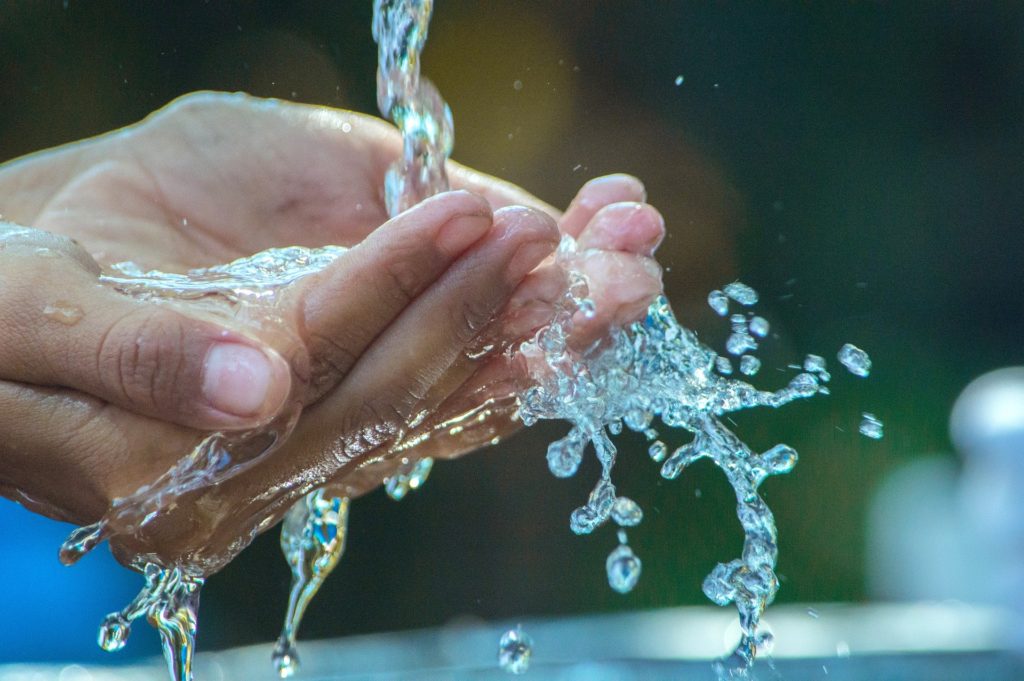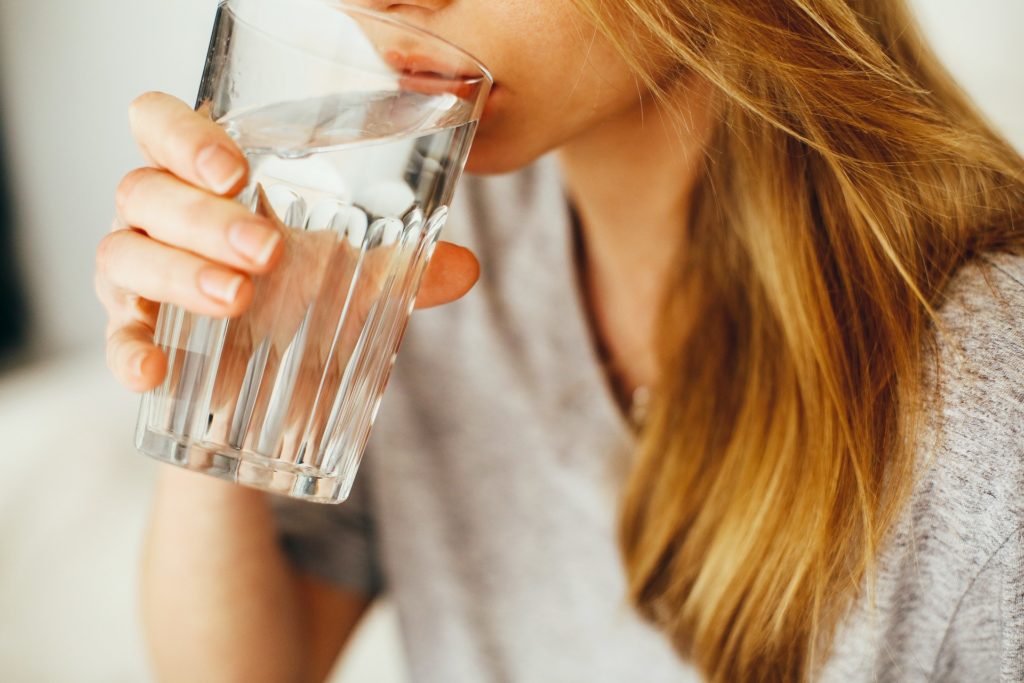This post was originally published in July 2020. Updated in November 2022.
Your body needs water daily to move, breathe, digest, and do other vital bodily functions well. The human body loses fluids throughout the day by sweating, peeing, breathing, and exercising. So, how to tell if you are dehydrated especially if you don’t drink enough water? Some common symptoms can help you figure this out easily.
Keep reading to get more info about the signs, how to stay hydrated, and how to tell if your child is dehydrated…
Table of Contents
Can Anyone Suffer From Dehydration?
Anyone at any age can become dehydrated when they don’t drink enough water as the percentage of water in the human body is up to 60%. But infants, children, and older adults are more vulnerable to dehydration.
Children usually experience diarrhea, fever, and vomiting which causes dehydration. Older people may also take medications that could make their bodies lose too much water.
Certain health problems including lung infections, diabetes, or bladder infections can increase the risk of being dehydrated.
Furthermore, athletes are at greater risk to become dehydrated as they lose fluids through sweat when they work out for long periods.
Luckily, your body warns you when it needs more water by causing some signs and symptoms. These signs include:
How To Tell If You Are Dehydrated?

Dehydration can be mild, moderate, or severe depending on the fluids that your body loses. Severe dehydration requires medical attention as it’s a serious health issue.
But if you have mild to moderate dehydration, you can easily replenish fluid loss by drinking enough water and eating food that is high in water content.
Common signs and symptoms of dehydration in adults include:
1- Thirst And Food Cravings
Feeling thirsty means that you’re dehydrated and your body needs more fluids. Also, cravings for salty food or sweets could be a sign of dehydration.
Cravings for sweets could happen because your body needs to release glucose in the bloodstream to give you energy. But your body could be unable to release glucose due to dehydration so it tries to replenish this by making you eat sweets.
A medical study has linked dehydration and body weight. The study found that dehydrated adults usually have higher body weight. This might mean drinking enough water per day may help curb your cravings. But we need more studies to confirm the results.
2- Headaches
A study showed that being dehydrated by 1.36% can cause headaches in females. This means even mild dehydration may trigger headaches.
To avoid headaches, keep drinking water during the day. This helps also your body to perform better.
3- Dark Urine

If your urine is dark, this could be a sign of mild to severe dehydration. You may also urinate less than three times a day if your body doesn’t get enough water.
Your body is trying to conserve more water which makes urine more concentrated and dark.
The normal color of urine is light yellow. So if you find your urine is dark, you may need to drink enough fluids per day to keep your body well hydrated.
4- Dry Or Flushed Skin
In winter, our skin becomes dry as it loses moisture due to dry air. And your skin feels rough or tight in summer due to sweating.
Also, your lips may become cracked and dry when you don’t drink water. To keep your skin healthy and glowing all year long, you should consume enough fluids. If your body is well hydrated, your skin will appear doughy and soft.
Related: 18 Extremely Simple Tips On How To Be Healthy At Any Age
Skin And Nail Tests
Pinch your skin with two fingers to make a tent shape and wait to see what happens next. If it takes some time to get back to normal, this means that you need to drink more water. But If your skin remains tented after pinching, this is a sign of severe dehydration.
Also, your nails can tell if you are dehydrated. Pinch your nail bed until it becomes white then release. Usually, it takes 1-3 seconds for the color to return to the nail bed. If your body doesn’t get enough water, it will take a longer time to get back to normal.
5- Constipation
Water is essential to help your body digest food well and push waste to move through the digestive tract.
When you don’t drink enough fluids per day, the digestive system won’t work as it should and this will cause constipation.
Also, not drinking water may cause changes in bowel habits. your body may go for days without regular bowel movements. And your stool may appear dry or look like small hard lumps.
6- Bad Breath
When you don’t drink water for a long period, your mouth feels dry and your body won’t be able to make enough saliva.
Saliva reduces bacteria from overgrowth due to its antibacterial properties. So when your mouth makes less saliva, you will probably have bad breath. You can avoid this by drinking enough water throughout the day.
7- Nausea

Dehydration can cause blood pressure and blood volume to drop which might cause nausea and fainting, especially among older adults.
Having nausea can also make you vomit which means you’ll lose even more water. And this can worsen the condition and makes you feel sicker.
Plus, you may feel lightheaded or you’re about to pass out at any moment when you don’t drink enough fluids.
8- Blood Pressure
When your body doesn’t get enough water, this can affect blood pressure as plasma ( the liquid part of the blood ) consists of 90% water.
According to the American Heart Association, being dehydrated can cause blood pressure to drop.
9- Brain Function
About 70% of your brain is water which means that you should drink enough fluids daily to help your brain function well.
A study showed mild dehydration can increase anxiety, stress, and fatigue in men. Also, spending hours in the heat without drinking water can affect concentration.
Another study found that water loss can cause concentration and memory problems.
It affects also your vision and makes you cause more driving mistakes. And it worsens your mood as dehydration can make you feel depressed or irritated.
10- Heart Problems

An increase in heart rate and quick breathing could be an indication of severe dehydration.
Losing fluids can decrease blood volume and make your body lose electrolytes. This means that your heart will have difficulty pumping blood through the body.
According to MedlinePlus, being dehydrated is a sign that your body is losing electrolytes, not just fluids.
Electrolytes are responsible for moving nutrients into your cells, balancing the amount of water in the body, and keeping muscles, heart, and brain functioning well.
So what can you do? Rehydrate your body to help return the heart rate to normal so your heart can work well again.
11- Pain And Tiredness
You may know you’re dehydrated when you feel tired or fatigued. A study showed that dehydration can cause tiredness in men. Also, low blood pressure due to dehydration can cause a feeling of tiredness.
Another study found that you may feel more pain when you don’t consume enough water per day. The study found that when participants drank fluids, they felt much better.
How To Tell Your Infant Or Young Child Is Dehydrated:

Infants and children are more prone to dehydration due to their small size. You may be able to tell if your child is dehydrated when you notice the following:
- Dry diapers for three hours.
- Dry mouth.
- Fever.
- Difficulty sleeping.
- Sunken eyes.
- The infant keeps crying without tears.
So if you notice these symptoms in your child, you should contact the child’s doctor right away.
How To Stay Hydrated?
- Drink enough water daily ( 2-2.7 liters for women, 2.5-3.7 liters for men).
- Consume more vegetables and fruits as they are high in water content.
- Eat soups.
- Drink electrolyte drinks.
- If you don’t like to drink water, you can add lemon slices or mint leaves to your water so it would taste better.
- You can also add a bag of herbal tea to your water.
- If you’re pregnant or breastfeeding, you need to drink more water to replenish fluid loss.
The Takeaway
Drinking enough fluids per day and eating food that is rich in water content can help prevent dehydration. There are common signs that can help you know if your body needs more water. Dehydration can be the reason for having bad breath, dark urine, headaches, constipation, and nausea. You may also experience heart and brain problems due to water loss.
Plus, having a fever or diarrhea makes your body lose more water which can cause or worsen dehydration.
If you’re taking medications or having an illness that might make your body lose more water, consult a doctor right away. Also, severe dehydration requires medical attention as it’s a life-threatening health issue.
